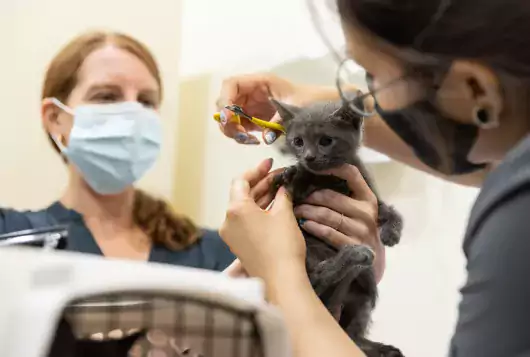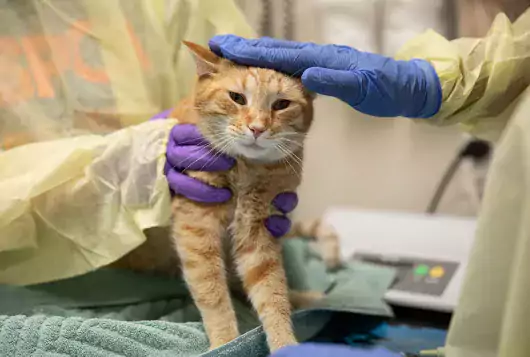Insights on Veterinarians’ Attitudes and Behaviors Related to Spectrum of Care Practices

Access to veterinary care for pet owners is an important part of keeping animals healthy. Not having enough money and other resources can make it hard for pet owners to get veterinary care. Though some veterinarians have started offering a range of care options to address clients’ needs, many still mainly give the most technological and specialized care they learned in their training. In order to better understand how veterinarians feel about offering a range of options, this study asked veterinarians how they feel and what they believe about offering more treatments in a range from less to more sophisticated. This study aimed to learn more about how veterinarians feel and what they believe about offering more treatments in a range from less to more sophisticated.
This cross-sectional research study assessed veterinarians’ self-reported behaviors, knowledge, attitudes, and beliefs about offering a spectrum of veterinary care services to learn how veterinarians understand and practice spectrum of care and to learn more about who is and who is not offering it. These insights can help inform animal health professionals about the status of the veterinary relationship to spectrum of care to help identify new approaches to increase the number of veterinarians who offer clients a spectrum of care options.
As new evidence for care options across the spectrum arises in the veterinary community, tracking shifts in whether veterinarians become increasingly likely to offer spectrum of care options for clients and patients without sacrificing safety and efficacy will be essential.
Study Design
We designed a survey to address the question of veterinary professionals’ attitudes toward offering a spectrum of veterinary care. We administered the survey to the VIN network, which represents a group of veterinary professionals including veterinarians and students who pay a fee for membership in an online community that provides continuing education, assistance with difficult cases, publication access, and other resources to help veterinarians connect with each other and learn about advances in the field.
Study Results
This study found that many veterinarians do report offering a spectrum of care; however, the veterinarians who already feel the most comfortable and confident providing a spectrum of care are the most likely to do so. When veterinarians have been in practice for more than 20 years, they are less likely to report offering a spectrum of services. Rural veterinarians were more likely to offer a spectrum than urban veterinarians. These results offer a reference for more exploration into the relationships between veterinarians and offering a spectrum of care options to people who need help.
Study Takeaways
These research findings document an important step in understanding the self-reported behaviors, knowledge, attitudes, and beliefs of veterinarians around offering spectrum of care for their clients. The data offers some of the first insights into who is offering a spectrum of care (i.e., those who are most comfortable offering it), and therefore, which populations of veterinarians may need more continuing education, examples, or peer support. As new evidence for care options across the spectrum arises in the veterinary community, tracking shifts in whether veterinarians become increasingly likely to offer spectrum of care options for clients and patients without sacrificing safety and efficacy will be essential.
Read the full research study: Veterinarians’ Self-Reported Behaviors and Attitudes toward Spectrum of Care Practices
We have lots more on this subject:




